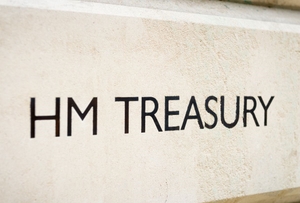In August, a flurry of headlines suggested that the Chancellor was preparing to announce a new property tax to replace Stamp Duty. The Treasury quickly sought to mitigate any potential damage, stating that no such reform was imminent, but the story had already taken hold. Newspapers speculated about the likely form of the new levy, commentators debated whether it would be more palatable to consumers, and property professionals fielded questions from clients anxious to know whether now was the time to buy or sell. Ultimately a drop in sales and sales registrations was detected in some areas of the market.
This episode is a reminder that in property, perception often matters as much as policy.
For some buyers, speculation about future tax rises is a call to act quickly, to secure a deal before costs increase. For others, it is a reason to delay, hoping that reform might bring a more favourable regime. The effect is a market caught in two minds – accelerating and pausing simultaneously – which rarely makes for smooth transactions.
Sellers too are left weighing their options. Do they accept an offer now, or hold out in case demand rises with greater certainty later in the year? Lenders and investors, who depend on a measure of predictability, may quietly step back from commitments until clarity returns.
The net result is hesitation, which is a huge threat to certainty. And in an economy that relies heavily on housing market activity to drive wider growth, uncertainty can have a drastic effect.
From a communications perspective, the real issue is not whether Stamp Duty is reformed – few would deny that reform is long overdue – but how and when any changes are presented to the public.
And because a well-functioning property market needs stability and confidence, for professionals in the sector – agents, developers, planners and investors – the challenge is how to communicate with clients in the face of uncertainty.
In property PR, uncertainty is a familiar backdrop. Few other industries are so exposed to shifting policy and economic cycles. But the principle of effective communication holds true: where facts are scarce, clarity of message becomes all the more important.
This means acknowledging the uncertainty rather than ignoring it; helping clients understand the difference between rumour and confirmed policy, and focusing attention on what can be said with confidence – whether that is about long-term demand drivers, project fundamentals, or the track record of delivery.
Good communication does not remove uncertainty, but it can stop it from becoming paralysing. It provides context, reassurance and a steady narrative that helps businesses, investors and individuals navigate turbulent news cycles.
For those of us working in property communications, this issue demonstrates the importance of being proactive rather than reactive. When clients face uncertainty, they need guidance on what messages to share with stakeholders, how to engage with the media, and how to maintain credibility. Silence or vagueness can damage trust, while thoughtful, evidence-based commentary can strengthen reputation.
For property professionals, the challenge is not to predict every twist of policy, but to maintain clarity and credibility amid the noise. For communicators, it is to ensure that uncertainty does not silence informed voices but rather encourages them to be heard.
At PNPR, we believe that clear, confident communication is not a luxury in such times but a necessity. In a sector as exposed to politics as property, words can move markets almost as surely as taxes themselves.
